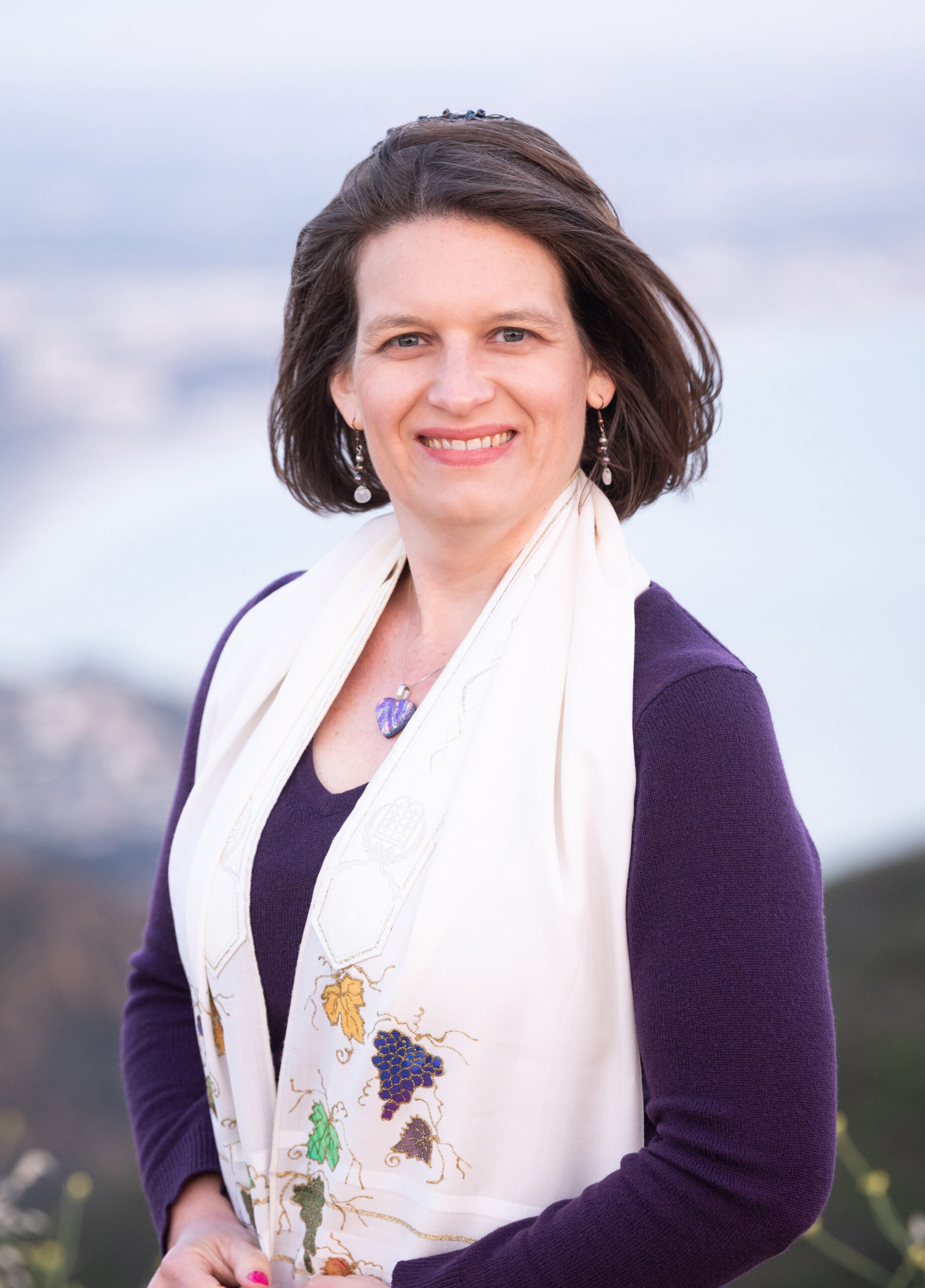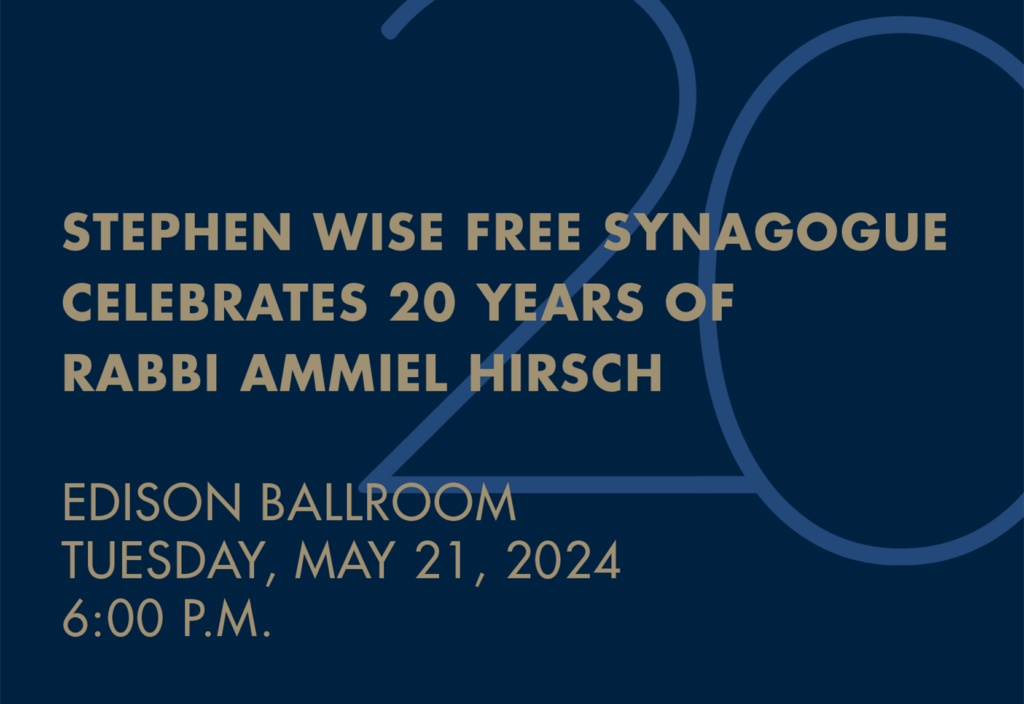
Rabbi Dalia Samansky
(She, her, hers)
Associate Rabbi
Email: dsamansky@swfs.org
Office: (212) 877-4050, ext. 246
Rabbi Dalia Samansky came to Stephen Wise from Temple Ahavat Shalom in Northridge, California, where she ran the religious school and youth programming for four years, and Los Angeles’ Melton School of Adult Jewish Learning, where she was a member of the faculty for 13 years. She was ordained by Hebrew Union College-Jewish Institute of Religion in 2009.
Watch Sermons
Taking Responsibility; Passing Leadership
We often hear Pirkei Avot quoted: “You are not obligated to complete the task, but neither are you free to abandon it,” says Rabbi Dalia Samansky. While generally used in social justice circles, this quote also reminds us that “ultimately, leadership must be passed on to each new generation — willingly or unwillingly.” Over the course of this week’s parashah, “both Miriam and Aaron die, and Moses finds out that he will not be the one who leads his people into the Promised Land, thus beginning the passing of leadership to the next generation of Israelites.”
A Leap of Faith
Having been enslaved for so long, the Israelites doubted their ability to enter the Promised Land. Rabbi Dalia Samansky explains that “faith is believing without proof,” something the older generation of slaves struggled with. In a world where God’s presence isn’t as obvious, how do we develop faith?
A Growth Mindset
As the weather heats up, we read about our ancestors’ 40 years of walking and complaining in the desert. Rabbi Dalia Samansky explains that the slave generation’s inability to believe in change kept them from entering the Promised Land, while the new generation’s growth mindset allowed them to succeed: “Just as God let us learn from our mistakes, we must allow our children, students and ourselves to make mistakes and discover the solutions to our problems.”
Humanity in the Pause
“How often have we reacted instinctively and immediately regretted it?” asks Rabbi Dalia Samansky. Recognizing our weaknesses, the Torah prescribes rest periods and mitzvot to encourage us to pause and reflect. “When we take that extra moment to choose our actions and words, we reach our highest potential.”
Mistakes and Redemption
“We as a community royally screwed up” when we built the golden calf, says Rabbi Dalia Samansky. “But it is what happens in this week’s portion that shows how we as a people grew from our experience. Mistakes and bad decisions happen. It’s how we respond, learn and grow after them that reveals our true character.”
Silver Linings
On this last Shabbat of 2023, we read about how Joseph came to terms with the treachery of his brothers. “Sometimes our negative experiences help prepare or propel us,” says Rabbi Dalia Samansky. And while “not every negative experience in our life leads to something better, being open to the possibility of growth from our struggles is to believe in hope.”
The Rally For Israel
Rabbi Dalia Samansky reflects on how rallying for Israel in Washington helped to “heal our heartbreak, lessen our loneliness, and diffuse our desolation…” She says, “Standing on the national mall in a sea of white and blue, with Israeli flags proudly waving, and chants of ‘Am Yisrael chai,’ one couldn’t help but to feel hopeful for the future of the Jewish people.”
Focusing on the Blessings
When Rabbi Dalia Samansky’s uncle died, her grandmother said, “God has been good to me. He gave me an extra 40 years with Marty.” “I was in awe of her ability to recognize and articulate her gratitude amidst her grief,” she says. “‘When you open yourself up to experience gratitude, you discover with clarity and accuracy how much good there is in your life…’”
The Danger of Silence
As we prepare for the High Holy Days, Rabbi Dalia Samansky recalls powerful moments in our history when silence and inaction had grave consequences. “Sometimes, our greatest failings are not in the actions we take, but those we fail to take, she says. “Judaism is a religion of action. Let us heed the sacred call and take action to create the change we want to see in the world.”
If A Tree Falls…
“If a tree falls in the forest, does it make a sound?” asks Rabbi Dalia Samansky. As we approach the High Holy Days, “we are held to account for all of our actions, seen or hidden.” During the month of Elul, we reflect and introspect — to make amends and become better versions of ourselves. Follow our Elul Values Exploration to engage in this practice: swfs.org/elul.
Recent Commentaries and Op-Eds
NY Jewish Week: New York Jews, grappling with surging antisemitism, are bolstered by massive pro-Israel rally
Nov 14, 2023
Congregants lined up in the morning cold outside the Stephen Wise Free Synagogue in the Upper West Side as the dawn broke Tuesday. Many of them held signs in support of Israel as well as supplies for the long day ahead as they boarded a large tour bus headed for Washington, D.C…


